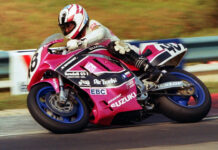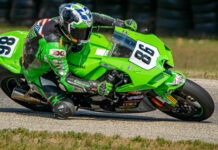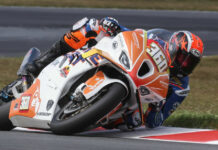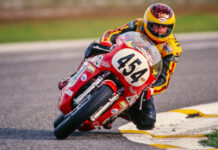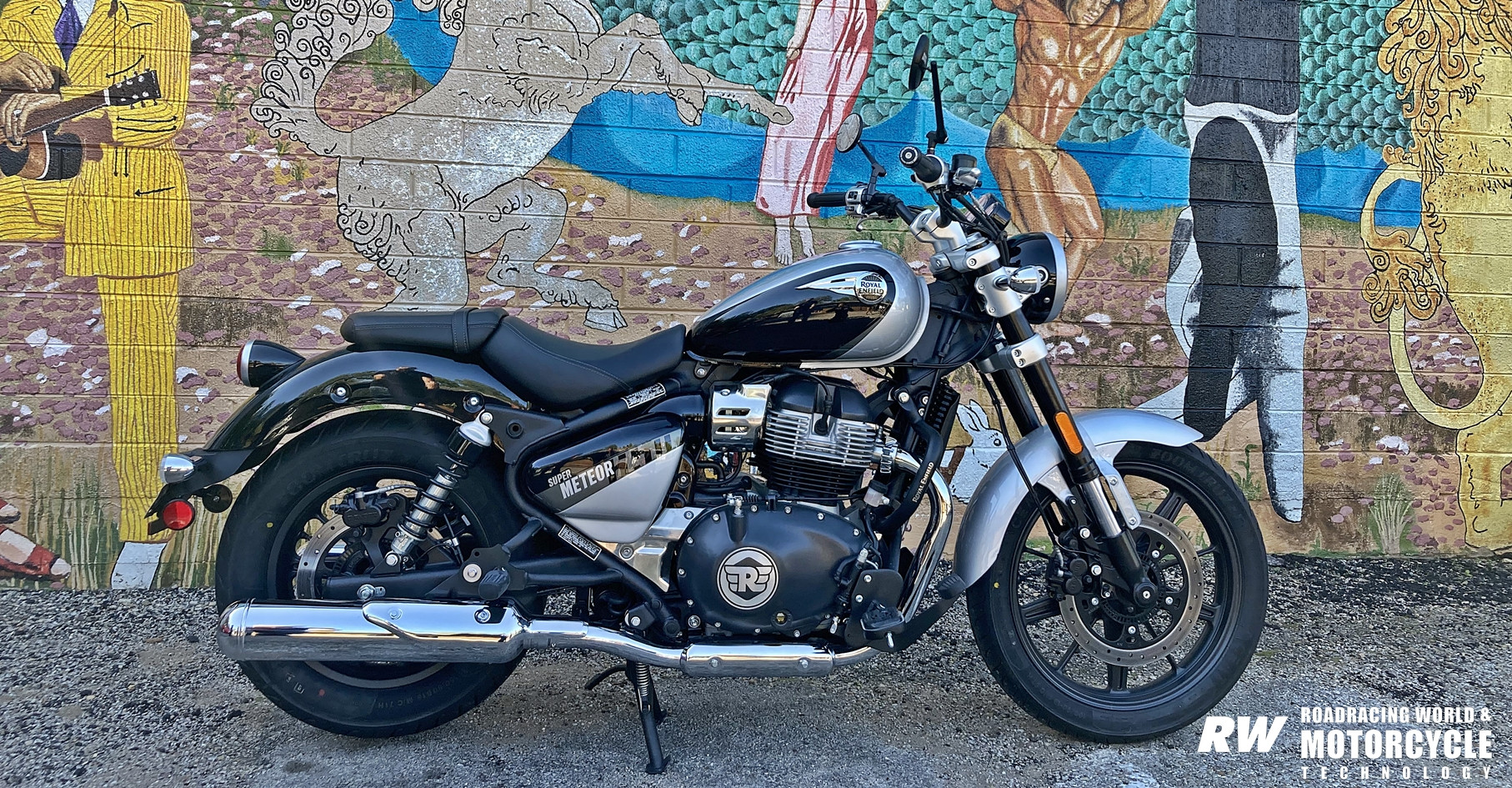Intro: Royal Enfield Super Meteor 650
Cruising Into The Past
By Michael Gougis
In retrospect, it seems inevitable that Royal Enfield would build this bike. The 648cc Parallel Twin engine first introduced in the Continental and INT650 models was perfect for a middleweight cruiser. And cruisers are part of the company’s heritage, historically serving as a testing ground for its newest technology and leading its lineup in terms of status and prestige.
Still, it is clear that the company put a great deal of thought and effort into making this bike a cruiser through and through, rather than just putting different pegs and bars on an INT650 roadster and calling it job done. It’s designed to look the part, act the part, and do so in a way that reflects Royal Enfield’s style-first, lifestyle-first approach to motorcycling.
The Super Meteor’s chassis is new, the bodywork is new, the suspension is upgraded, and there are little bits that let you know that this is Royal Enfield’s flagship model.
I spent 140 miles rolling around the highways and byways of north-central Texas, getting an impressions of how well the bike performed its mission–delivering the cruiser experience to riders who want an unintimidating, low-stress ride. It was all about settling back into the plush seat, feeling the thrum of the engine, and being in the moment, on a motorcycle, nowhere better to be and nothing better to do.
Tech Briefing
The core of the Royal Enfield Super Meteor 650 is its 648cc, SOHC, four-valves-per-cylinder engine, introduced in 2018. A gentle, under-stressed powerplant, it produces a claimed 46.4 bhp and 38.6 lbs.-ft. of torque, and is carefully balanced to reduce the vibration inherent in a Parallel Twin. There are some minor upgrades to the cylinder heads for this particular model. As the engine is a stressed member, the cylinder head has been strengthened to handle more load from the steering stem area. Otherwise, the engine internals and transmission ratios remain unchanged from the INT650 and Continental models. Power flows through an assisted/slipper clutch to a fat, 16-inch rear tire.
The chassis is all new, with a raked-out front end and forward-mounted foot controls. For the first time, a Royal Enfield has inverted forks, in this case 43mm Showa Big Piston units with separate functions in each fork leg. One leg handles rebound damping, the other handles compression damping, with no need to know which is which because there are no adjustments.
A single twin-piston Bybre caliper and 320mm (12.6-inch) disc handles braking at the front, and a similar Bybre caliper is mated to a 300mm (11.8-inch) disc at the rear. The bike features antilock brakes, and that is the extent of its electronic rider aids.
Cruisers are all about style, and it is extremely clear that Royal Enfield stylists spent a great deal of effort on how it looks. The finish of individual parts was amazing, especially on a bike built to a price point. The fit, surprisingly, was not as precise as I might have hoped; perhaps that issue will be corrected as production ramps up.
Riding The Super Meteor 650
Throwing a leg over the Super Meteor demonstrates that the company is serious about making it comfortable. The seat is low, the bars are easy to reach, and the overall riding position isn’t particularly extreme. At speed, even without the optional windscreen, the wind blast isn’t fatiguing. The pegs and foot controls are forward, cruiser style, but they are high enough that feet don’t drag during cornering.
Clutch feel is light but substantial, and flawless fuel injection mapping makes the throttle response precise and easy to manage–important for new and returning riders. There’s not a ton of horsepower, but the torque and throttle response at the bottom of the rpm range makes the bike easy to ride in city traffic, which is something Royal Enfield engineers put special effort into.
There’s no tachometer, but the engine tells the rider when it’s time to upshift. When it is in the meat of its powerband, all the rider feels is a steady, pleasant thrumming. When it is near the rev limit, the vibration definitely starts to change from pleasant to intrusive. In sixth gear, the bike rolls along comfortably until the speedometer shows about 75 mph. Then things start to get busy, and while it is possible to nudge the Super Meteor into triple digit speeds, the bike does not feel very happy there at all.
The brakes are progressive and confidence inspiring, if not particularly powerful, but they do provide steady stopping power for the inexperienced rider who gets in over their head and has to grab a handful of front brake lever. The feel at the brake lever is substantial yet light, and it is a good place for a rookie rider to adapt to using the front brake lever more frequently.
There were not many high-speed corners on the ride route, but in the few that we did find, the bike delivered more confidence and more feel than I expected. The ride quality suffered mostly from the relatively limited rear wheel travel and shocks that seemed to lack significant damping in either direction. Some of the truly challenging road surfaces in Texas really highlighted that, and I think this might actually be the first motorcycle I’ve ridden where I would change suspension bits before putting on an aftermarket exhaust. On second thought, I’d go with new mufflers first; I love the sound of one of these Royal Enfield 650 Twins with a good pipe on it.
It’s important to remember the target that Royal Enfield is shooting for with this motorcycle. It is supposed to look good, sound good, and feel good at a moderate or relaxed pace, along with having very affordable pricing. Rolling down a two-lane roadway heading back to the hotel, as long as I was in no rush and kept the bike within its comfort zone, it was easy to enjoy being on a cool-looking motorcycle, middle of the afternoon, just cruising along. That’s what Royal Enfield wants to deliver with the Super Meteor 650. That and the feeling that a new, casual rider can get when they park the bike, take a few steps, turn around, look back, and think with pride, yeah, that one’s mine.
Suggested retail starts at $6,999, with bikes heading for dealerships this week.


